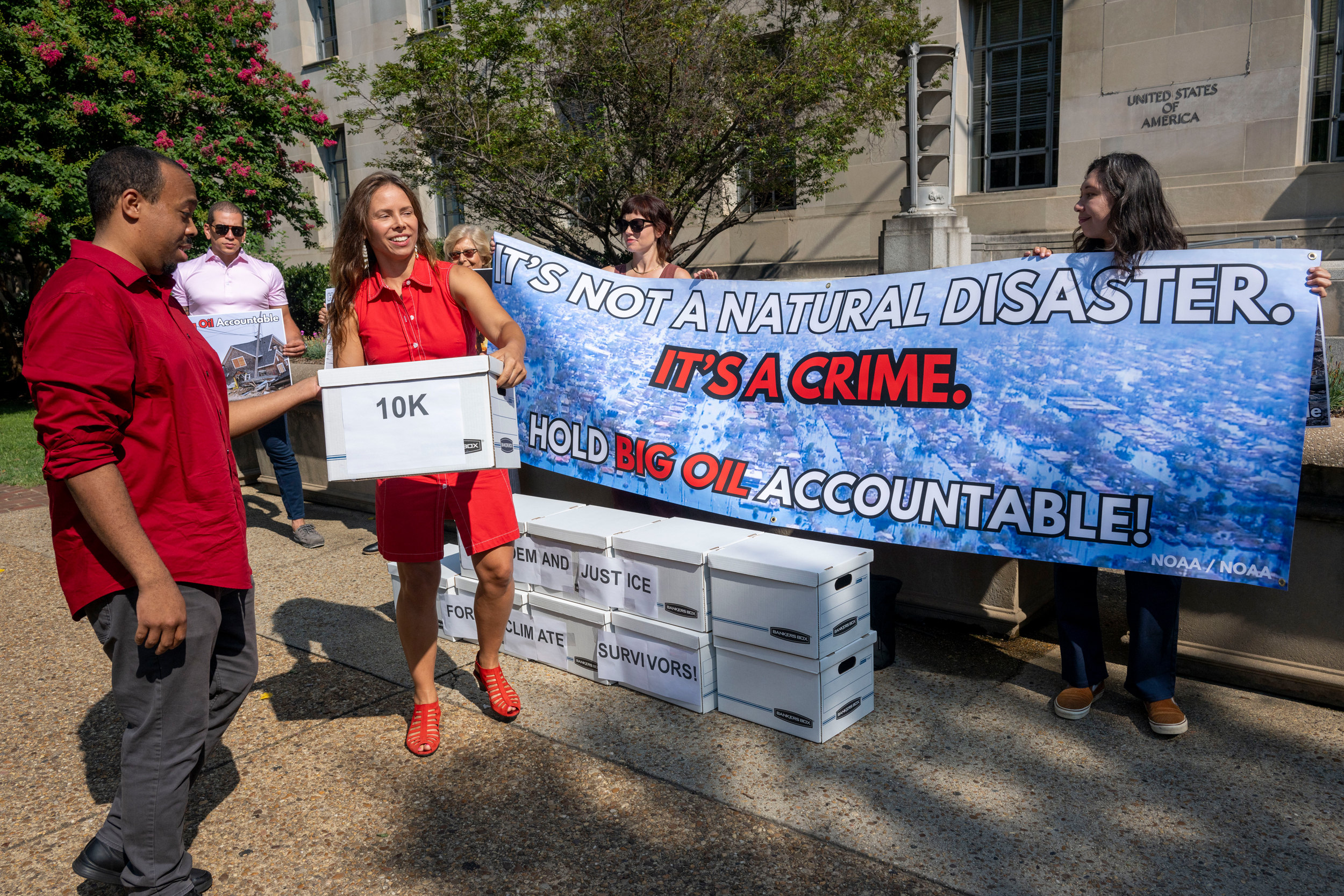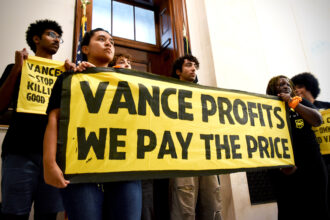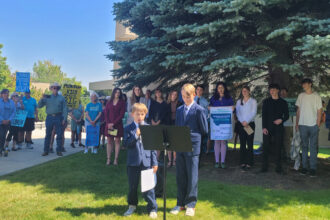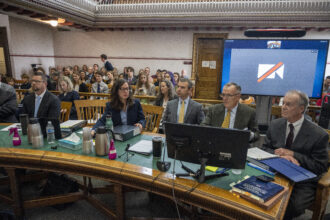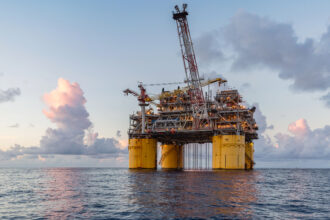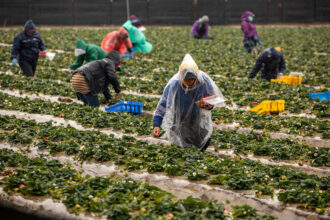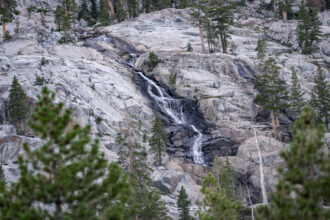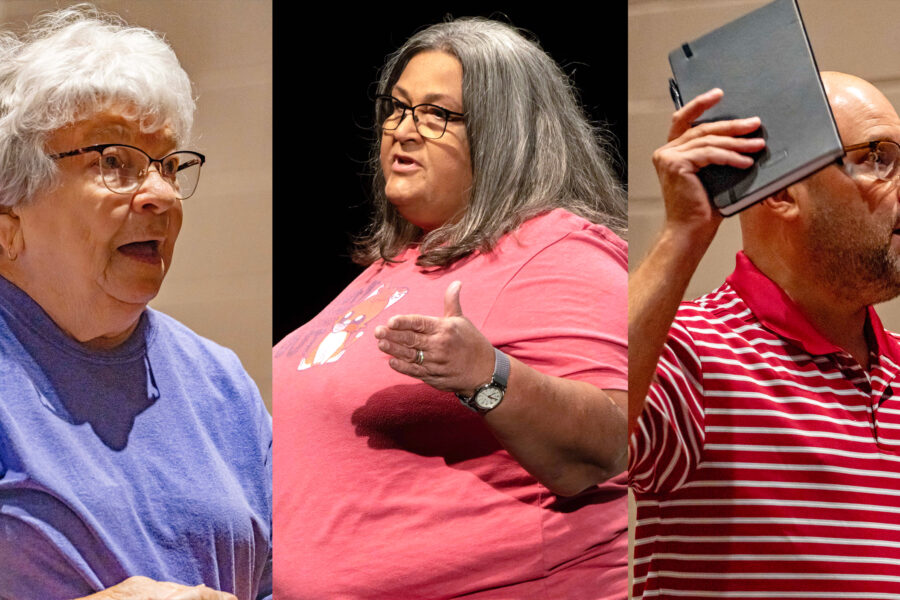Allen Myers was getting ready to visit his parents in his hometown of Paradise in November 2018 when the community was hit with the deadliest wildfire in California’s history. As he traveled home, Myers experienced the destruction in real time.
“I was watching chaos unfold live, as friends drove through flames, as my godparents were surrounded by fire,” he remembered.
Myers’ childhood home was destroyed and his parents and neighbors lost everything, he said. And although the local utility company—PG&E—pleaded guilty to 84 counts of involuntary manslaughter, Myers said another culprit went unnoticed: the fossil fuel industry, for exacerbating the conditions, like drought and dryness, that enable increasingly devastating fires.
Now, Myers is among more than 1,000 self-identified survivors of climate disasters and about 10,000 total signers of a letter calling on the U.S. Department of Justice to investigate fossil fuel companies for climate-related crimes.
A small group, spearheaded by nonprofit consumer advocacy organization Public Citizen and the Chesapeake Climate Action Network, delivered the letter to the DOJ on Thursday morning. It’s the latest in a growing trend of legal action attempting to hold the fossil fuel industry accountable for the human costs of climate change, and a newer push to put companies and industry executives in criminal court.
“The folks who are injured or lose their homes or [are] killed in [climate-driven disasters], those aren’t just tragic accidents,” said Aaron Regunberg, a senior policy counsel at Public Citizen. “They’re the result of specific reckless or knowing conduct by particular corporate actors that generated a substantial portion of all the greenhouse gas emissions that caused climate change and that engaged in this massive campaign of deception and delay, specifically in order to stop the actions that would have alleviated or avoided those disasters.”
The Department of Justice’s Office of Public Affairs declined to comment on the letter.
Calls for Big Oil’s Judgment Day
As the destruction from climate-related disasters like wildfires, hurricanes, floods and extreme heat become increasingly common and severe, and as public awareness of the fossil fuel industry’s disinformation grows, so have calls for compensation from the industry. This year, Vermont became the first state to pass legislation requiring fossil fuel companies to pay for climate damages, and New York’s parallel bill is awaiting the governor’s signature. Advocates have also increasingly moved to target fossil fuel companies in court.
Since 2016, the Center for Climate Integrity has tracked more than 30 lawsuits against fossil fuel companies for climate accountability in the U.S., with complaints ranging from consumer protection violations to accusations of racketeering and fraud. While most of these lawsuits are civil complaints, some legal scholars are now pushing for criminal prosecution against the industry, hoping for judgments that force companies to phase out oil, gas and coal and direct profits towards renewable energy, for example. Other legal experts have said that proving criminal liability will be an uphill battle.
Patrick Parenteau, a climate policy fellow and emeritus law professor at the Vermont Law and Graduate School, said that the increase in legal action stems from the acute financial burden of the climate crisis and “desperation” to find money to fund adaptation.
According to Parenteau, civil cases seeking compensation for financial damages are practical, but criminal cases—where the burden of proof is much higher—are more challenging.
“How do you then disaggregate global emissions to get down to an individual company and try to attribute to that company responsibility for the damage done by that event?” he asked.
In May, eight extreme weather victims filed a criminal case in France against executives of the global energy giant TotalEnergies, arguing that the company’s top decision-makers are criminally liable for human deaths and biodiversity damage. The European lawsuit, which is currently being considered by a public prosecutor, came just as Public Citizen was doing its own research on how to prosecute the industry in the U.S., said senior policy counsel Clara Vondrich.
“This wild idea was suddenly being made concrete,” Vondrich said. “It was really just confirmation that we were on the right track.”
Michael Gerrard, a climate and environmental law professor at Columbia University, said that proving criminal liability will be a “steep mountain to climb,” and said the tactic of criminally prosecuting the industry might be more useful as a campaigning tool than a legal one.
“Attribution science is growing stronger, and [it is] becoming increasingly possible to attribute the magnitude of a heat wave in part to fossil fuel emissions, but there’s still quite a leap between that and holding fossil fuel companies criminally liable,” Gerrard said.
This story is funded by readers like you.
Our nonprofit newsroom provides award-winning climate coverage free of charge and advertising. We rely on donations from readers like you to keep going. Please donate now to support our work.
Donate NowRegunberg said that Public Citizen is working with criminal legal scholars, former prosecutors, climate researchers and criminal justice reform advocates to develop a concrete legal pathway to hold oil and gas companies criminally accountable for climate harm. In June, the organization published a 50-page report showing a prosecutorial blueprint to pursue homicide charges for heat-related deaths in Arizona’s Maricopa County, where 2023 saw 645 such deaths.
Thursday’s action was focused on bringing the voices of those most impacted by climate disaster to the DOJ, Regunberg said, adding that the DOJ taking leadership on an investigation might open the door for public safety officials around the country to explore options for prosecuting the industry.
‘These Polluters Need to Pay’
In the first five years following the 2018 Camp Fire, Myers devoted himself to rebuilding Paradise. During that time, he had to evacuate the area three times, twice for wildfires and once for severely dangerous air quality. Watching as drought spread and wildfires grew in scale and intensity across California, he and his partner sought a safer place to live, settling on Portland, Oregon.
“We’ve been told … that these fires would get bigger because of the climate crisis, and we know that the fossil fuel industry is creating the climate crisis,” Myers said. “They are directly responsible, and yet they remain acting with impunity.”
“These industries are making billions of dollars here off of our backs, and all they’re giving us is poison and pollution and killing our babies.”
The signers of Public Citizen’s letter come from all across the country, and include Louisiana activist Roishetta Ozane, who has been hit continuously with climate disasters and environmental injustice. Ozane has been displaced three times by hurricanes over the past 20 years. In April, a tornado caused severe damage to the offices of The Vessel Project, Ozane’s mutual-aid and disaster relief organization in Lake Charles, Louisiana.
Ozane has been at the helm of national movements to fight against the expansion of liquified natural gas terminals in the Gulf South and to target financial institutions and the insurance industry to cut off viability for the fossil fuel industry. She said signing onto the letter to the DOJ is just one of many tactics she’s taking to target the fossil fuel industry from all directions, seeking reparations for the harms her family and community have experienced.
“These polluters need to pay … for the climate crimes that they have committed,” Ozane said. “These industries are making billions of dollars here off of our backs, and all they’re giving us is poison and pollution and killing our babies.”
Over the next few weeks, Ozane’s 18-year-old son will undergo testing like video electroencephalography (EEG) to prepare for likely brain surgery to treat his epilepsy, which he was diagnosed with last year. He has been having frequent seizures, which specialists have told Ozane are likely connected to long-term exposure to industrial pollutants.
Ozane and her kids live in southern Louisiana, in a community with some of the highest pollution rates in the country. Her son has traces of mercury in his system, and her other kids have dealt with asthma, eczema and other health issues.
“Being a mom, I’m trying to protect my children as much as possible from everyday dangers,” Ozane said. “But now I’m having to protect them from industries that are committing crimes.”
About This Story
Perhaps you noticed: This story, like all the news we publish, is free to read. That’s because Inside Climate News is a 501c3 nonprofit organization. We do not charge a subscription fee, lock our news behind a paywall, or clutter our website with ads. We make our news on climate and the environment freely available to you and anyone who wants it.
That’s not all. We also share our news for free with scores of other media organizations around the country. Many of them can’t afford to do environmental journalism of their own. We’ve built bureaus from coast to coast to report local stories, collaborate with local newsrooms and co-publish articles so that this vital work is shared as widely as possible.
Two of us launched ICN in 2007. Six years later we earned a Pulitzer Prize for National Reporting, and now we run the oldest and largest dedicated climate newsroom in the nation. We tell the story in all its complexity. We hold polluters accountable. We expose environmental injustice. We debunk misinformation. We scrutinize solutions and inspire action.
Donations from readers like you fund every aspect of what we do. If you don’t already, will you support our ongoing work, our reporting on the biggest crisis facing our planet, and help us reach even more readers in more places?
Please take a moment to make a tax-deductible donation. Every one of them makes a difference.
Thank you,

